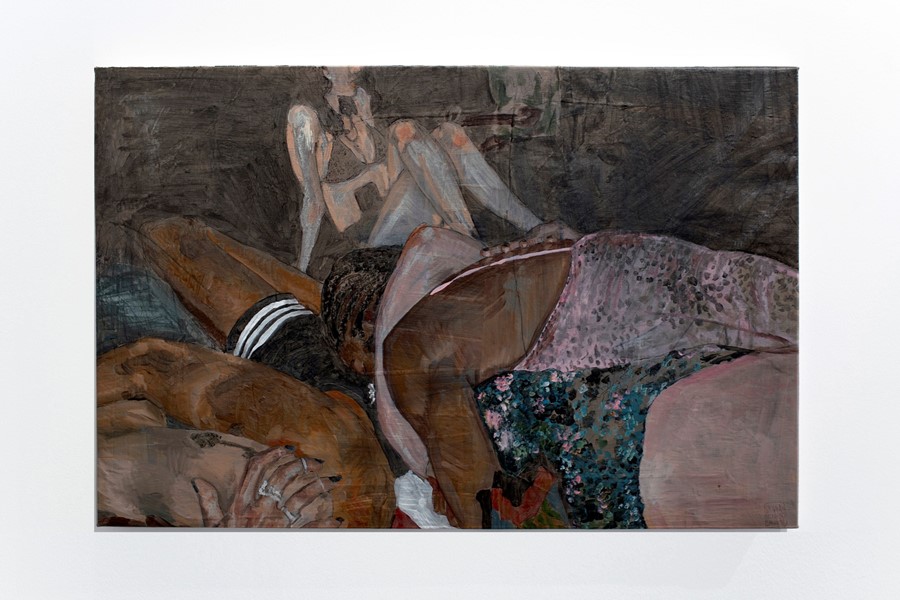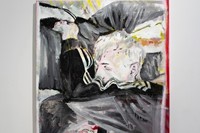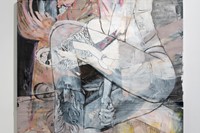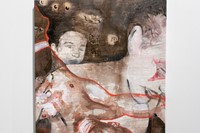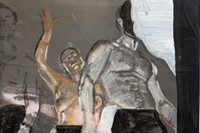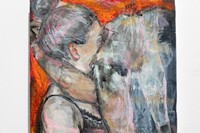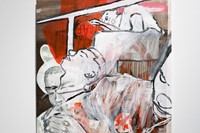In the new exhibition Deluge, Italian artist Giovanni Leonardo Bassan presents a series of complexly layered paintings of modern life
Immersed in Paris’ queer scene, Italian artist Giovanni Leonardo Bassan is a participant, portraitist, and voyeur, capturing ever-shifting impressions in an ecstatic whirlwind blur. In his new exhibition Deluge, which has just opened in Paris, Bassan presents a series of complexly layered paintings of modern life, charting his personal journey through the realms of love and life in the 21st century.
“I’m observing the everyday but I feel particularly inspired by the night scene where most people tend to lose their inhibitions,” Bassan tells AnOther. “I like the idea of documenting my own moment to define the [present].”
Bassan’s paintings don’t just describe a scene but translate the experience itself by layering otherwise unrelated images of revelers caught in various states speeding through the universe. Blending line, colour, texture, and form, Bassan creates the kaleidoscopic sensation of nightlife at its most surreal.
Like an archaeologist excavating the past, Bassan removes layers to create a chaotic, volatile sense of our present-day reality. Everything is transient and nothing is fixed, introducing the fundamental idea of incompleteness. Raw and unfinished, Bassan’s work hovers in a state of suspended animation where the future is still yet to come.
“Deluge is not the ‘arrival’ point of these pieces,” Bassan reveals. “If some of these artworks return to me, it is probable that I will continue to work on them. I’m almost scared of the idea of finishing a painting, leaving it as is for the rest of time. I feel that I’m killing it.”
Bassan’s words echo that of Leonardo da Vinci, who observed: “Art is never finished, only abandoned.” He rejects the idea of completion, understanding that art mirrors life, saying, “Everything I like is mutable, evolving and maturing so I don’t see why I cannot allow this for my pieces. It feels like an open-ended narrative where there is space for the invisible to emerge.”
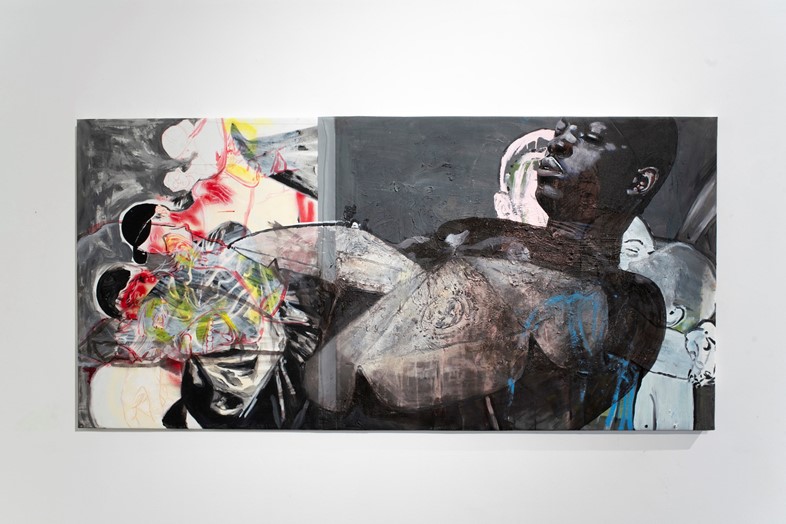
In Deluge, we witness fragments mingle and merge, searching for communion and connection rather than a fixed resolution. These vivid moments of intimacy, surrender, and tenderness draw inspiration from the work of Philip Guston’s late 1960s triptych Deluge, a transitional work in the artist’s career. The work was both a comment on America’s brutality overseas and at home, as well as the artist’s internal conflicts.
“Our modern struggle, the environmental crisis that is crushing us all, leaves the younger generation almost without hope,” Bassan says, echoing the crisis of conscience that so many are feeling today. As such, Bassan’s paintings evoke Madame de Pompadour’s foreboding epigram: “Après nous, le déluge” – though today the figurative is terrifyingly literal.
For Bassan, completion may never come and that’s more than OK. In keeping the paintings open to the possibility of something more may one day exist, he is fully invested in realising a future for better, not worse, delaying the end indefinitely.
Giovanni Leonardo Bassan: Deluge is now on view at The Mine, Paris.
